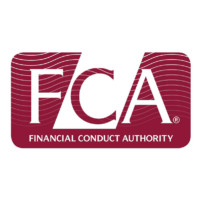
The aim of the SM&CR is to reduce harm to consumers and strengthen market integrity by making individuals more accountable for their conduct and competence.
As part of this, the SM&CR aims to encourage a culture of staff at all levels taking personal responsibility for their actions, as well as make sure firms and staff clearly understand and demonstrate where responsibility lies.
The SM&CR replaces the Approved Persons regime, changing how people working in financial services are regulated.
Banks came under the SM&CR in March 2016. The SM&CR already applies to UK banks, building societies, credit unions, branches of foreign banks operating in the UK and the largest investment firms regulated by the Prudential Regulation Authority (PRA) and the FCA.
SM&CR codifies what it means to be a senior manager
Dame Jayne-Anne Gadhia, former chief executive at Virgin Money, described the SM&CR as effectively “structuring the way in which boards and senior managers should have been behaving all along.”
She added: “I think it is really important to understand the essence of the SM&CR, which is not trying to trip us up, it is not trying to end up with everyone in prison. It codifies and professionalises what it means to be a senior person working in an important organisation.
“It is actually to make sure that everybody does understand what’s asked of them, does understand the job that they’re supposed to do and can deliver on it to the best of their ability.”
“The real change, I guess, was being absolutely clear about objectives and accountabilities and I think before the Regime came in, we thought we were clear but when you start to then put it against a required template, you realise that there are some areas that are a bit fuzzy and some areas of decision-making that weren’t really clear enough.
“I think it really sharpened up our ability to talk to people about their objectives and accountabilities, really sharpened up where decision making sat between the board and the executive, for example, and it enabled us of course to document that in a thorough way and then hold people accountable for delivering against it.”
People need to be aware of their responsabilities
Jon Symonds, deputy group chairman at HSBC, described the SM&CR as “a clear framework that is relatively simply defined on pretty much one page per person that really defines how the organisation knits together.”
Symonds said that the SM&CR came into an environment where more clarity was needed, however like all the new regimes, it took a while to adapt.
Also, he advised the organisations introducing the SM&CR to try not to look at it from a position of fear.
He added: “Clearly, it does give to the regulators a much easier hook to put people on when things go wrong. Having said that, if people are clear about their roles, responsibilities and accountability, it actually improves the quality of the interaction, the discussions and the quality of the control over the business that actually is overall beneficial.”















